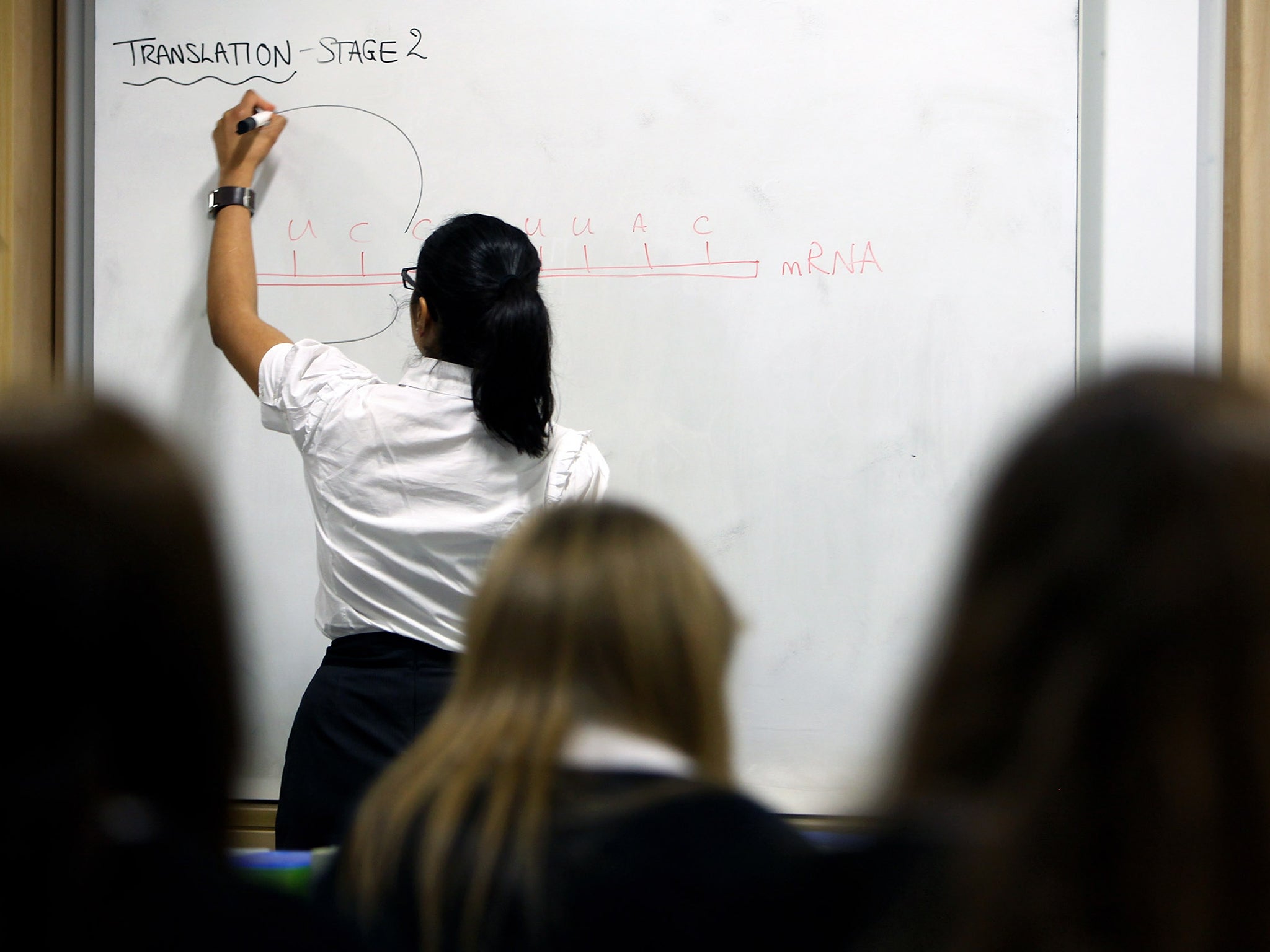‘Crippling’ government cuts to slash £300,000 from secondary schools
The loss of funding equates to the loss of two teachers for a primary school and six teachers for a secondary

Your support helps us to tell the story
From reproductive rights to climate change to Big Tech, The Independent is on the ground when the story is developing. Whether it's investigating the financials of Elon Musk's pro-Trump PAC or producing our latest documentary, 'The A Word', which shines a light on the American women fighting for reproductive rights, we know how important it is to parse out the facts from the messaging.
At such a critical moment in US history, we need reporters on the ground. Your donation allows us to keep sending journalists to speak to both sides of the story.
The Independent is trusted by Americans across the entire political spectrum. And unlike many other quality news outlets, we choose not to lock Americans out of our reporting and analysis with paywalls. We believe quality journalism should be available to everyone, paid for by those who can afford it.
Your support makes all the difference.Secondary schools could lose the equivalent of six teachers as a result of severe funding cuts, it has been suggested.
The average secondary in England is facing losses of almost £300,000, while primaries will lose out on tens of thousands of pounds, according to a new report by the Education Policy Institute (EPI).
It warns that growing financial pressures will mean that all state schools across the country are likely to see real terms cuts to per pupil funding in the next few years, with half of primaries and secondaries facing reductions of between 6% and 11% by 2019/20.
The average primary school will see a real terms drop in funding of £74,000 between 2016/17 and 2019/20, while the average secondary is set to lose out on £291,000.
These drops equate to the loss of two teachers for a primary school and six teachers for a secondary, it calculates.
The figures take into account financial pressures such as increases in pension and national insurance contributions, as well as cuts to a major education grant, and the impact of the Government's plans to introduce a new national funding formula (NFF).
EPI executive director and report co-author Natalie Perera said: “While the NFF is broadly welcome, our research highlights that the wider financial pressures on schools mean that all schools in England are set to experience real terms per pupil cuts in spending over the next three years, even after the new formula is introduced.
“Our findings suggest this could mean an average primary school loses funding equivalent to two teachers, while the average secondary school loses the equivalent of six teachers.”
Under government proposals to introduce a new national funding formula, schools will get basic funding per pupil and additional money based on factors such as deprivation, and low prior attainment of pupils.
Ministers have said the new system will be fairer for schools.
The EPI report says that even though the Government is proposing to allocate more money to disadvantaged pupils as part of the formula, the overall impact of the reforms would be to shift funding away from the most disadvantaged youngsters towards those in the “just about managing” group.
And it warned: “The proposed increase to low prior attainment funding (from £1.4bn to £2.4bn), combined with plans to use the Early Years Foundation Stage (EYFS) as a measure of whether a child is at risk of falling behind, heightens the current incentive for teachers to depress pupils' results at the end of the Reception year in order to attract more funding to the school.”
The EYFS assesses what a child can do at age five, at the end of their reception year at school.
Separately, two social mobility charities are warning that the new funding plans do not do enough to address the disadvantages faced by many poorer pupils living in deprived areas.
In its submission to the Government's NFF consultation, the Sutton Trust and the Education Endowment Foundation suggested that the new formula appeared to “advantage schools with low prior attainment ahead of schools with high deprivation”.
Liberal Democrat education spokesman John Pugh said: “This government is slashing funding for poorer pupils while spending millions on its own wasteful pet projects.
“It is a betrayal of families across the country whose children will be left on the scrapheap.
“While the majority of schools are facing crippling cuts, almost £1 billion is being spent on an ideological crusade to expand free schools and grammars.
“Theresa May promised to deliver for everyone, but is trashing our schools and building an education system that only works for the privileged few.”
Press Association
Join our commenting forum
Join thought-provoking conversations, follow other Independent readers and see their replies
Comments